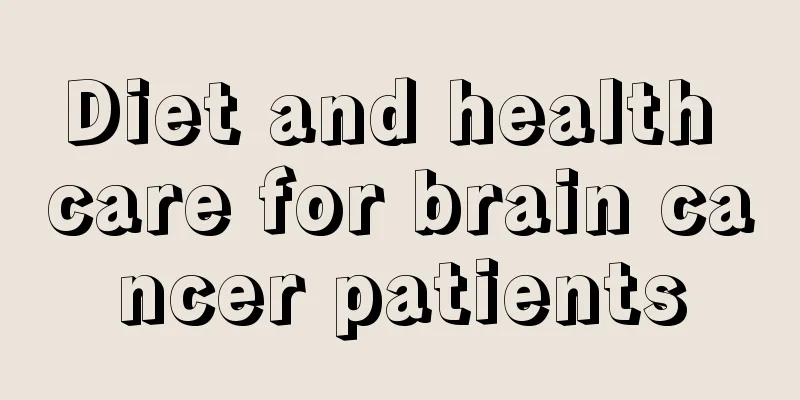I feel drowsy and can't help myself

|
Everyone must get enough sleep every day, otherwise insufficient sleep will greatly affect the mental state of the next day. However, some people find that even if they get enough sleep, they are still in a drowsy state the next day. In this state, they can't muster the energy to do anything, which has a great impact on their life and work. So what is the reason for drowsiness and uncontrollable sleepiness? 1. Cerebral hemorrhage If middle-aged men experience unexplained drowsiness or sleepiness, they must pay close attention to it, as it may be a precursor to ischemic stroke. The accelerated pace of modern life has significantly increased the incidence of cerebrovascular diseases in middle-aged people. At this time, if there is danger in the cerebral blood vessels, there will be problems with the blood and oxygen supply to the brain, resulting in symptoms of drowsiness and fatigue. In addition, there may be other precursors such as numbness of fingers, unexplained falls, and changes in mental state. 2. Heart disease Fatigue and weakness are common symptoms of various heart diseases. Heart disease can cause poor blood circulation, causing metabolic waste (mainly lactic acid) to accumulate in tissues, stimulating nerve endings and causing fatigue. Fatigue can be mild or severe. Mild fatigue may not be a concern, but severe fatigue may interfere with work. But heart disease fatigue is not specific and is difficult to distinguish from fatigue caused by other diseases. In addition to fatigue, there are also symptoms such as shortness of breath. 3. Severe brain hypoxia The brain is the control center of the entire human body, and its oxygen consumption accounts for 25% of the total oxygen consumption of the whole body! The brain cannot be deprived of blood and oxygen for a moment. Just a few seconds of hypoxia can cause dizziness, blacking out, stars in the eyes, and even fainting, which can be life-threatening! Nowadays, many office spaces are often located in buildings with poor air circulation, which can easily lead to chronic brain hypoxia. Long-term lack of oxygen to the brain will lead to symptoms of drowsiness, fatigue, and lethargy. 4. Hypertension Clinical symptoms such as dizziness, headache, drowsiness, fatigue or insomnia caused by hypertension are very common. Patients with hypertension should be aware of the above-mentioned symptoms. The occurrence of these symptoms indicates that their blood pressure is fluctuating and they need to be vigilant. 6. Diabetes In fact, diabetic patients are twice as likely to experience daytime sleepiness as other people. Because it is a metabolic disease, its manifestations are diverse and lack specificity. Long-term fatigue and sleepiness during the day may also be a sign of developing diabetes. |
>>: Is it normal to have a medical abortion clean after 21 days?
Recommend
Can the glans penis be washed with soap?
Men's glans are prone to some skin diseases. ...
How can I refresh myself
Nowadays, people are under great pressure in life...
What causes sudden itching on the body?
Under normal circumstances, our body should feel ...
Differential diagnosis of colorectal cancer
Colorectal cancer lacks symptoms in the early sta...
What are some tips for removing glasses marks?
Nowadays, many people can hardly live without gla...
How often does blood in the stool occur in patients with intestinal cancer?
There is no fixed answer to the question of how o...
What should we pay attention to in order to prevent the occurrence of colon cancer?
The incidence of colon cancer is very high in our...
Right elbow pain
There are often various illnesses in life, and th...
What does it mean when the herpes simplex virus antibody is positive?
If a woman is found to be positive for herpes sim...
Unsteady walking, dizziness, body shaking
Walking is something we need to do every day. We ...
What to do if your eyes hurt and swollen, these can help you
Eye pain and swelling are very common in clinical...
What are the effects of lemon honey water?
Lemon is a fruit that is rich in vitamins and can...
Huawei knuckle screenshot is not easy to use
Huawei mobile phone is one of the most popular mo...
What should we do to prevent cervical cancer? 4 things women who want to prevent cervical cancer must know
Cervical cancer is preventable. Because the cause...
How does lung cancer metastasize
In recent years, lung cancer has become one of th...









